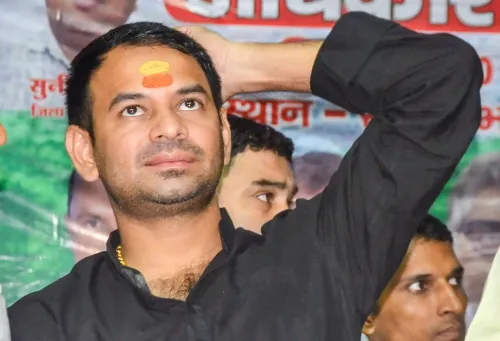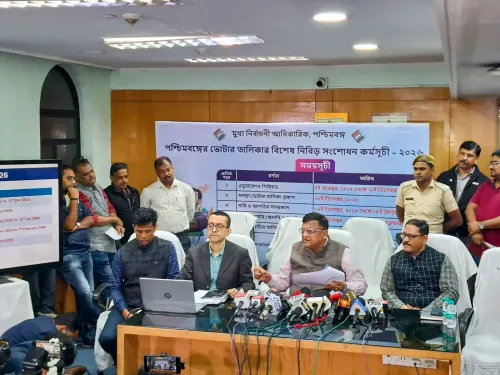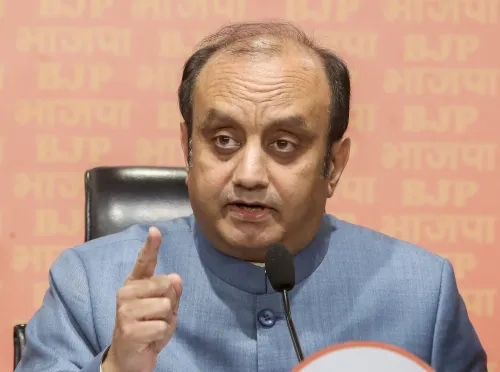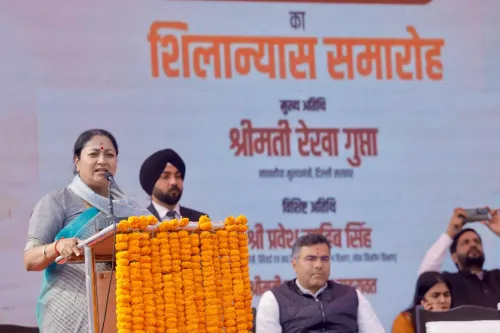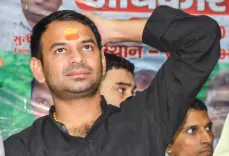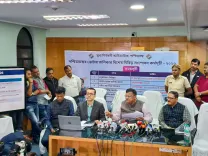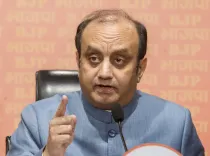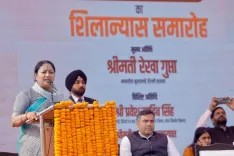Did Karnataka HC Halt the Closure of Jan Aushadhi Outlets in Hospitals?

Synopsis
Key Takeaways
- Karnataka High Court intervenes to halt the closure of Jan Aushadhi outlets.
- Legal fight led by MP Tejasvi Surya emphasizes the importance of affordable medications.
- Closure order deemed a violation of constitutional rights.
- Jan Aushadhi outlets provide medicines at 50-90% lower prices.
- Significant implications for the livelihoods of store owners and patients.
Bengaluru, July 8 (NationPress) The Karnataka High Court has put a hold on the state government's directive to shut down Jan Aushadhi outlets located within government-run hospitals.
The ruling was made by a bench led by Justice M. I. Arun, addressing a total of 18 petitions filed by owners of Jan Aushadhi Kendras, represented by a legal team spearheaded by Bengaluru South MP Tejasvi Surya.
The petitioners argued that the government's decision was made hastily and without prior consultation. They contended that this order infringes upon the Right to Livelihood as stated in Article 19 (1) (G) and the Right to Life under Article 21 of the Constitution.
In his statement, Surya remarked: “The Karnataka State Government attempted to forcibly shut down Jan Aushadhi Kendras - a flagship initiative of Prime Minister Narendra Modi aimed at offering high-quality generic medicines at affordable prices.”
“While I challenged this action in parliament, my office also engaged in a legal fight. We filed writ petitions in the Karnataka High Court, which has now suspended the state government’s order to close Jan Aushadhi stores in public hospitals. This is a significant victory for underprivileged patients and their families. Kudos to young advocate Anirudh Kulkarni and his team,” he added.
Earlier in May, the Karnataka government mandated the closure of Jan Aushadhi Kendras in public hospitals, citing a conflict with its objective to provide free medicines in government facilities.
The petitioners highlighted that their outlets were supplying generic medications at drastically reduced prices, between 50-90%, thereby enhancing accessibility for economically disadvantaged patients.
They also expressed to the bench their concerns regarding the investments of their hard-earned money and life savings into establishing their businesses, warning that the closure would have catastrophic consequences on their livelihoods.
In response to the state government's shutdown order, Surya stated: “This action of closing Jan Aushadhi centres compels the poor to purchase medicines at inflated prices instead of accessing generic medications at 70-90% lower rates under Narendra Modi's PMBJP scheme. This not only denies essential medicines to the impoverished but also threatens the livelihoods of numerous generic store proprietors.”


